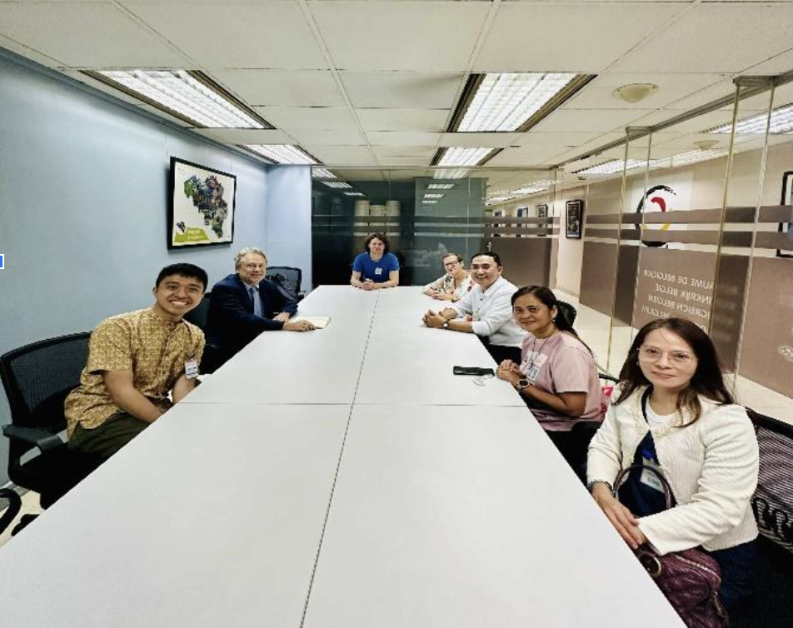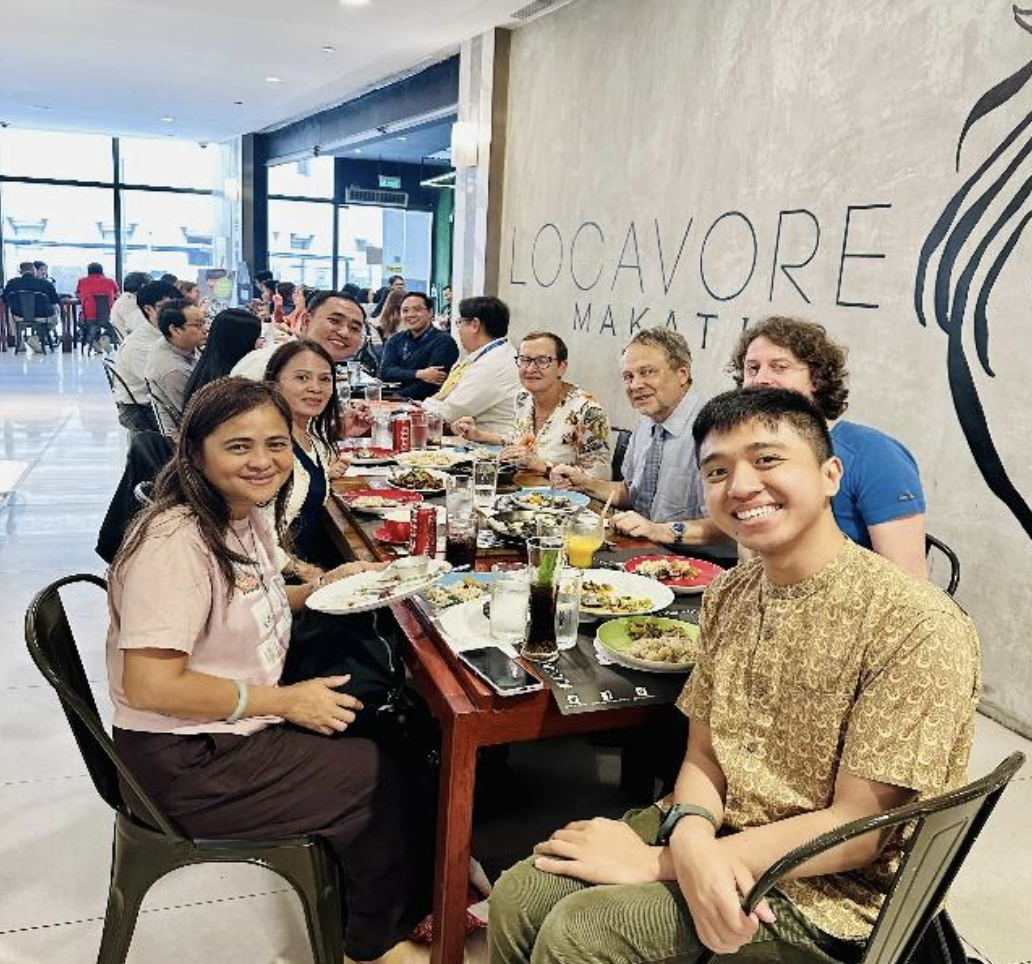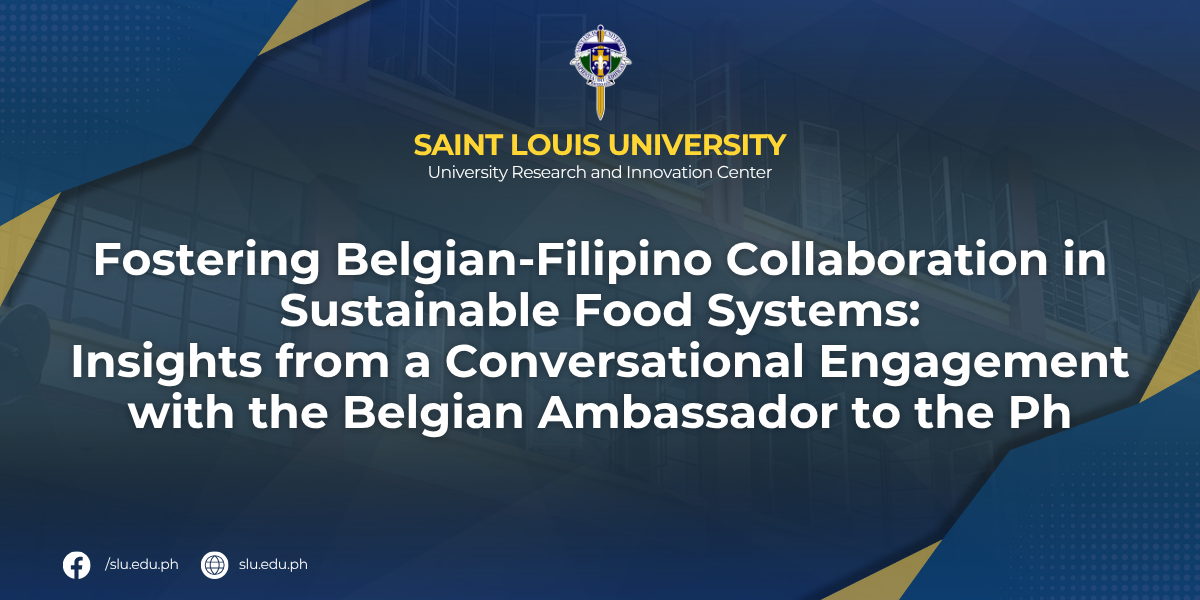This article documents the recent hybrid meeting between the SLU-VLIR Short Initiative Food Upcycling Team and the outgoing Belgian Ambassador to the Philippines, His Excellency Michel Parys, held at the Belgian Embassy, Multinational Bancorporation Center 9th Floor, 6805 Ayala Avenue, Makati City on 8 July 2025. The encounter provided an invaluable opportunity to discuss the enduring Belgian legacy at Saint Louis University (SLU), share progress on the Food Upcycling project that addresses SDG 12 & 2 (Responsible Consumption & Production & Zero Hunger; and reflect upon the role of diplomacy in advancing collaborative solutions for food and agricultural sustainability.
Belgium and the Philippines share a rich history of academic and cultural exchange, underscored by longstanding institutional partnerships. The SLU-VLIR Short Initiative, a two-year project on food upcycling, exemplifies the robust ties between SLU and Belgian academic institutions, notably the University of Ghent. The recent engagement with Ambassador Parys underlines the multifaceted role that diplomatic actors play in promoting transnational research and policy dialogue on sustainability.
Ambassadorial Insights and Reflections
During the meeting, Ambassador Parys, who is preparing to conclude his mission in August 2025, emphasized the importance of sustaining Belgian-Filipino cooperation. He warmly encouraged his successor—a female diplomat—to visit SLU and Baguio City, drawing attention to SLU’s unique origins as an institution founded by Belgian missionaries. This gesture not only reinforces the historical bond but also paves the way for continued engagement and deeper ties under new diplomatic leadership.
A highlight of the meeting emerged in the Ambassador’s personal connections with key Belgian academics actively involved in Philippine collaborations. Ambassador Parys specifically referenced Professor Hans De Steur of the University of Ghent, acknowledging his ongoing projects at esteemed Philippine institutions such as Benguet State University, Bicol State University, Central Luzon State University, and the University of the Philippines Los Baños. These partnerships have catalyzed significant progress in food system innovations, agricultural capacity-building, and knowledge sharing, furthering both nations’ shared sustainability goals.
SLU-VLIR Food Upcycling Project: Progress and Challenges
The SLU Food Upcycling Team presented an overview of their project, structured in four interconnected phases: quantification of food wastage, identification of upcycling pathways, stakeholder engagement, and educational outreach. The initiative is noteworthy for its systems-based approach—bridging research, community involvement, and policy advocacy.
Despite these advances, the adoption of food upcycling practices in mainstream food and agricultural systems remains a nascent endeavor in the Philippines. The team candidly acknowledged the expected challenges and timeframes involved, reaffirming their commitment to influencing policy frameworks as a critical strategy for institutionalizing food upcycling at both local and national levels.
Diplomatic Perspectives on Sustainable Food Systems
Ambassador Parys provided a pragmatic assessment of the Philippine agricultural value chain, highlighting the case of Bukidnon’s sweet potato supply to Metro Manila as illustrative of significant logistical and structural challenges in the domestic supply network. He stressed the importance of “building bridges,” both figuratively and literally, to enhance connectivity, minimize post-harvest losses, and ensure equitable distribution—a central objective of sustainable food system transformation.
The Human Element of Diplomacy
Beyond the technical and institutional discourse, the meeting’s most enduring legacy may well be the Ambassador’s heartfelt reflections on his posting in the Philippines. With statements such as, “Those who missed being in the Philippines are missing a lot,” and, “It’s not hard to love the Philippines,” Ambassador Parys articulated the profound personal and cultural resonance that international assignments can foster.
In conclusion, the encounter with Ambassador Parys underscored the critical intersection of academic research, policy advocacy, and international diplomacy in addressing complex challenges such as food waste and sustainability. As the Belgian ambassador passes the torch to his successor, the foundations for enduring cooperation remain robust, buoyed by historical legacy, institutional commitment, and genuine cross-cultural appreciation.
The SLU-VLIR Food Upcycling Team expresses gratitude for Ambassador Parys’s support and vision, which will undoubtedly inspire future initiatives at the nexus of science, society, and diplomacy. (Article by Jennet E. Razo and Richel L. Lamadrid | Photos by SLU UnRIC)









